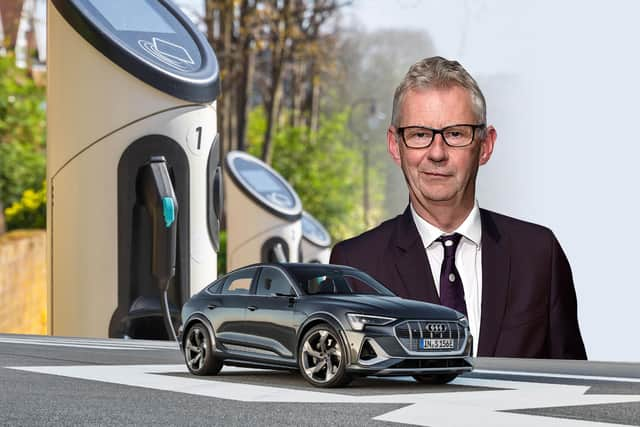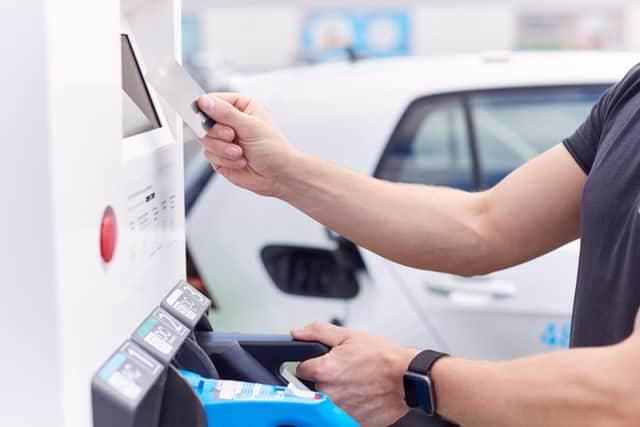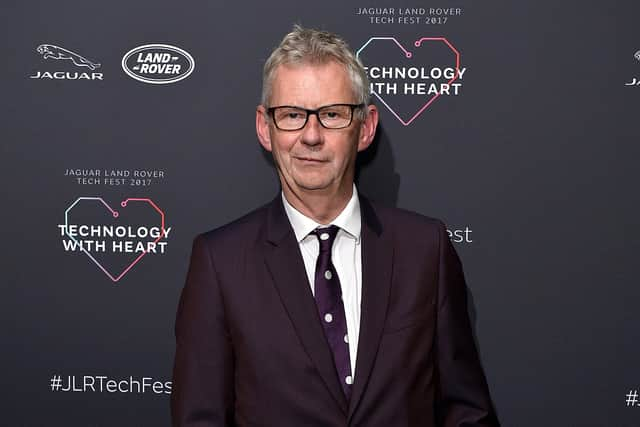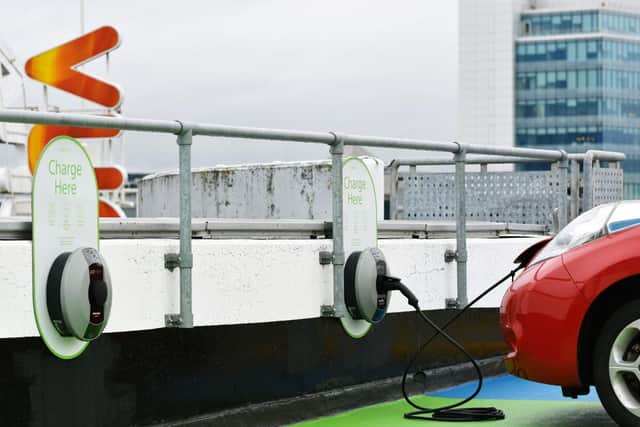Edmund King: Simplicity is key to driving adoption of electric cars
This article contains affiliate links. We may earn a small commission on items purchased through this article, but that does not affect our editorial judgement.
and live on Freeview channel 276
Simplifying the world of electric cars, from vehicle costs to charging infrastructure is vital to encourage their wider uptake, according to AA president Edmund King.
Speaking exclusively to National World, Mr King said that consumer misunderstanding and a lack of clarity were adding barriers to EV adoption even as provision of both cars and charging is improving.
Advertisement
Hide AdAdvertisement
Hide AdAs the Public Accounts Committee warns that the country faces a “huge challenge” to be ready to meet the 2030 ban on new petrol and diesel cars, Mr King said he was more optimistic but warned there were still hurdles to overcome.


He told National World: “The next nine years are going to be pretty radical. We’re at the beginning of that and even though sales of EVs are picking up it's still a very small proportion at the moment.
“At the AA we ask drivers about the subject a lot. The top things that would give drivers confidence in EVs are ease of access to home chargers; knowing they can plug in at any charger no matter who runs it; and a fast reliable system on the motorway network.
“When you look at infrastructure for the majority of people the vast majority of charging they’ll do will be at home. That’s fine for the 60 per cent who’ve got off street parking. But for those 40 per cent of people who live in flats, apartments, terraced houses it is much more of a problem. So for me the real issue is what do people do who can’t charge at home?”
Advertisement
Hide AdAdvertisement
Hide AdFor Mr King, the solution is a combination of council, private enterprise and community-backed infrastructure that gives drivers simple options close to home and on the road.


“What local authorities do in the early days as a catalyst does have a role,” he says. “Some local authorities have put in some local charging points but different authorities have dealt with it in different ways and there are over 100 that, despite a £20 million grant from government haven't used it for on-street charging.
“I think that’s where a community campaign like Just Park has talked about can come into its own,” he says.
That campaign is among initiatives that allow householders and community locations with chargers to rent out their spaces and chargers to other EV drivers.
Advertisement
Hide AdAdvertisement
Hide Ad“If we’ve got driveways close to other people that don’t have driveways then linking up with someone on the same street or the next street could really help those individuals. If you get a really cohesive network of home chargers and community chargers that could be shared, I think that will begin to make a difference,” Mr King says.


He also believes that charger sharing has benefits for wider travel, for instance allowing sports fans or gig-goers quick and guaranteed access to a charger close to their desitination.
Beyond that, he believes the growth in chargers on the road network and at destinations such as shopping centres, supermarkets and hotels will make the switch easier for drivers. With the announcement of £300 million investment in charger infrastructure from Ofgem, plans for Europe’s highest-powered charging station near Oxford and a tie-up between 200 Costa drive-thrus and Instavolt, options are expanding.
“The charging network is getting better. You are seeing some better companies - like Gridserve with their station at Braintree - that are helping. On the motorway network there’s been criticism of Ecotricity, now Gridserve have bought up 25 percent of that so hopefully the quality will improve. Then you’ve got other companies like Instavolt where it’s one touch with a credit card and you’re charging.”
Advertisement
Hide AdAdvertisement
Hide AdThat simple and quick access is vital, he says, in making EV ownership as easy as possible.


“When I asked a former colleague for a rundown of the cards and accounts you need for EV charging, he gave me a list that was pages long. I don’t want that complexity. It was fine for early adopters, they loved EVs so much, but simplifying the system in terms of payment and complexity will help and that is beginning to happen.”
Making things simpler at home is also important, he argues. “For home charging one thing that should be clearer is what are the best tariffs if you are an EV driver. I’ve researched it and it’s not easy. We need more simplicity around those tariffs and how they work. It is complicated.”
As well as improving infrastructure, Mr King, who himself drives a Porsche Taycan, says the expanding range of EVs will help encourage drivers to make the switch.
Advertisement
Hide AdAdvertisement
Hide Ad“In the early days, EVs weren’t that exciting but now you’re getting a much broader range that are much better to drive, more luxurious.
“If you’d said to me five years ago that new petrol and diesel cars are going to be outlawed by 2030. I’d have been pretty depressed, because the range out there weren't cars I particularly wanted to drive but that is changing and I think that's quite exciting.
“Moving forward to 2030 was pretty radical but manufacturers are embracing it across the board and it’s leading to greater competition.”
As good as the cars may be getting, a lack of knowledge is still a major obstacle, according to Mr King. “In an AA survey of 15,000 drivers, 63 per cent hadn’t heard of the plug-in car grant, 50 per cent hadn’t heard of the home charger grant, and 25 per cent weren’t aware of the zero VED.
Advertisement
Hide AdAdvertisement
Hide Ad“And there are some myths that you still get all the time around long journeys and battery life. We need to overcome that thinking and change attitudes.”
As well as making people more aware of the incentives and benefits such as lower servicing costs and running costs, Mr King says consistency is vital. He points to the recent sudden changes to the plug-in car grant that caught buyers and sellers by surprise.
“What we need is the incentive not to be greater but to be longer term. If you look at the UK more than 50 per cent of new cars are bought by business fleets.
“The fleets need a three-year plan and if they’re given that plan that says the grant will be available for those three years, they would buy more cars and then you get more of those EVs coming on the used car market.
Advertisement
Hide AdAdvertisement
Hide Ad“That would make a radical change. As soon as those fleet cars come into the used car market it speeds things up. The way to bring the price down is to get more cars on the used market.”
Allied to making more cars more affordable, he believes that engaging new drivers in the EV conversation will help accelerate things. “If you can get to new drivers, young drivers get them tuned into EVs at an early stage, it's good for later adoption and maybe gets kids to influence their parents.”
With new models designed to attract younger buyers, public and private investment in infrastructure and signs that it’s becoming easier to find and pay for charging Mr King says he’s hopeful for the future: “Four or five years ago I probably wasn’t both in terms of infrastructure and models available. The last couple of years have changed that. Radical community involvement like the Just Park project and simplifying things for drivers helps and means I think we can be a bit more optimistic.”